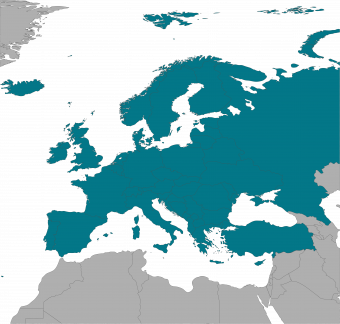Europe
Recent Activity

Report authors and an ELL professional discuss the mechanics of school funding and the specialized services provided for migrant-background students in the United States, Canada, France, and Germany. Speakers also highlight the choices facing policymakers who seek to use supplementary funding to better support effective, high-quality education for children from immigrant and refugee families.

Swedish and U.S. government officials, and MPI's Kathleen Newland discuss global and national responses to rising displacement, innovations in managing migration processes, and attempts to address the dysfunctional aspects of international migration, in a discussion organized by MPI and the Embassy of Sweden to the United States.

A discussion on how the politics and migration policies of the British government influenced the decision to hold the "Brexit" referendum, how public attitudes towards immigration might influence the decision whether the United Kingdom leaves the European Union, and how the outcome might impact migration policy in the United Kingdom and European Union more broadly.

Experts discuss how European governments have responded to pressure brought by the recent influx of migrants and refugees, and how the EU asylum reception system can be strengthened to better respond to fluctuation in needs for capacity, improve efficiency and quality, and meet national

MPI Europe expert analysis and discussion with UNHCR and Italian NGO representatives on what is being done and what can be done to connect Syrians and other refugees with opportunities to settle, work, and live outside the immediate region of the Syrian conflict.
























As Europe and the United States Face Similar Migration Challenges, Spain Can Act as a Bridge
Spain and the United States both receive their greatest number of immigrants from Latin America, and have worked collaboratively together on displacement crises and other migration issues. As shared immigration challenges dominate debate on both sides of the Atlantic, Spain can serve as a vital bridge in the policy conversation, this commentary notes.